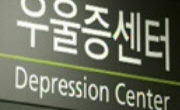This study aimed to explore intervention strategies for improving the quality of life of middle-aged adults by examining the longitudinal changes in depression and risky drinking and the impact of social isolation on these variables. For the analysis,...
http://chineseinput.net/에서 pinyin(병음)방식으로 중국어를 변환할 수 있습니다.
변환된 중국어를 복사하여 사용하시면 됩니다.
- 中文 을 입력하시려면 zhongwen을 입력하시고 space를누르시면됩니다.
- 北京 을 입력하시려면 beijing을 입력하시고 space를 누르시면 됩니다.

중·장년층의 사회적 고립이 우울과 위험 음주에 미치는 영향: 종단적 상호인과관계 검증 = The Impact of Social Isolation on Depression and Risky Drinking in Middle-aged Adults: A Longitudinal Cross-lagged Relationship Analysis
한글로보기부가정보
다국어 초록 (Multilingual Abstract)
This study aimed to explore intervention strategies for improving the quality of life of middle-aged adults by examining the longitudinal changes in depression and risky drinking and the impact of social isolation on these variables. For the analysis, an autoregressive cross-lagged model (ARCL) was tested using data from 865 participants, collected over the 7th to 9th waves of the Korean Longitudinal Study of Aging (KLoSA) conducted by the Korea Labor Institute, targeting the middle-aged and older population. The findings were as follows. First, social isolation had a direct impact on depression in middle-aged adults. Second, depression and risky drinking among middle-aged and elderly people showed a strong autoregressive effect over time. Third, it was found that depression and risky drinking among middle-aged and elderly people were mutually influenced other over time, which showed that depression and risky drinking among middle-aged and elderly people formed a vicious cycle and were important factors in exacerbating mental health problems. This study highlighted the cyclical relationship between depression and risky drinking in middle-aged adults and revealed that the pathways through which social isolation affected depression and risky drinking were different. The study emphasizes the importance of targeted interventions in addressing these mental health challenges in practice.
동일학술지(권/호) 다른 논문
-
코로나-19 유행 전 후 자살시도자의 임상적 특성 비교 분석
- 한국콘텐츠학회
- 김대욱
- 2024
- KCI등재
-
광고의 정보성과 주목성이 호기심에 미치는 영향에 있어서 인스타툰의 역할
- 한국콘텐츠학회
- 이자윤
- 2024
- KCI등재
-
한국이 참여한 COVID-19 관련 다분야 논문의 사회적 영향력과 그 변화에 관한 연구 : 알트메트릭스를 중심으로
- 한국콘텐츠학회
- 조재인
- 2024
- KCI등재
-
- 한국콘텐츠학회
- 신현미
- 2024
- KCI등재




 DBpia
DBpia






